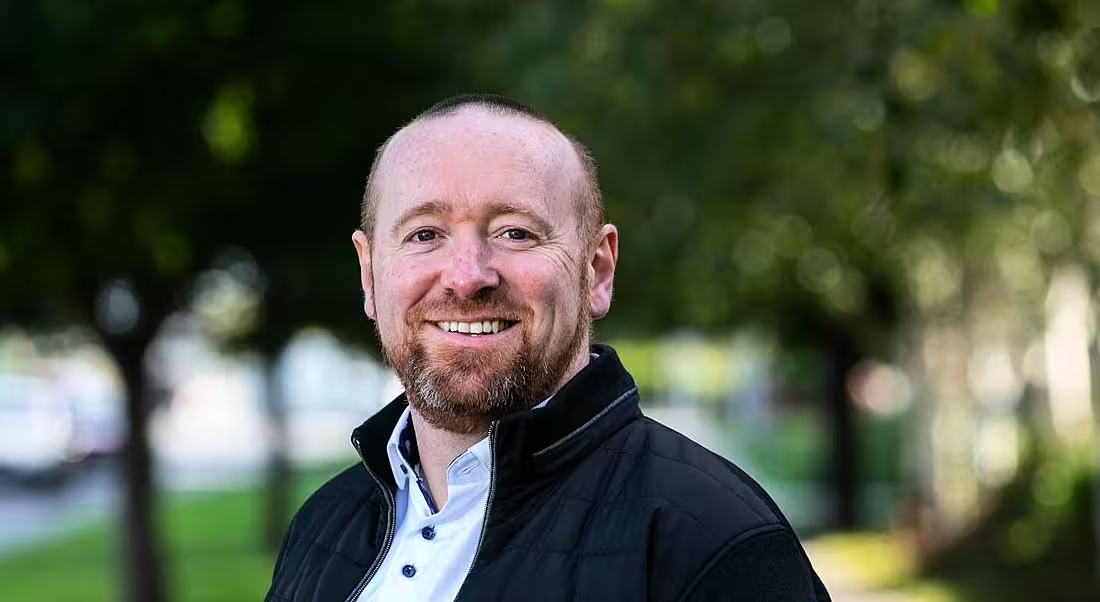Accenture’s Barry Heavey discusses how the life sciences industry has changed and the most in-demand roles and skills right now.
At the end of last year, data from pharma recruiter Cpl Life Sciences and data analytics company Vacancysoft revealed that there was record recruitment in Ireland’s life sciences sector in 2021.
This year has already seen expansion plans announced by a number of pharma, biotech and medtech companies in Ireland, including Boston Scientific, Medtronic, Janssen and Merck.
So for those looking to work in the sector, what are the most in-demand roles right now and what skills are needed to be successful in the industry?
Barry Heavey is the managing director of life sciences at Accenture in Ireland. He told SiliconRepublic.com that he is seeing a lot of demand for skills in digital technology right now.
“What we look for is people who can combine skills in digital technologies with an understanding of the actual problems and complexities that companies face in developing and supplying ever-more complex products to ever-more focused patient populations,” he said.
“Across the wider industry in Ireland, I see a very large demand for people who are interested in working in manufacturing, quality, supply chain management, regulatory affairs, data analytics and process development.”
‘If you are strong in digital technologies, think about upskilling in areas like biotechnology or medical device technology’
– BARRY HEAVEY
While some graduates with a science degree might not see a role in manufacturing or quality as an exciting long-term option compared to R&D, Heavey said it’s important not to discount these career paths.
“Most biopharma companies need their manufacturing and quality teams to orient themselves more towards development and research, so these roles will hold exciting development opportunities while giving new graduates a great first step on the career ladder where they can learn all about the challenges of producing highly complex products to save lives.”
While there are a wide range of technical skills that will be needed in life sciences such as mRNA synthesis and formulation, conjugation chemistry, multivariate analysis and artificial intelligence, Heavey said “multi-disciplinarity is key”.
“We need manufacturing and quality people who can collaborate with R&D and regulatory affairs people and vice versa. We need people who combine scientific, engineering, IT and business skills as well as the wider skills of communication, storytelling, project management, etc.”
Heavey also said that the industry is moving so fast now that the old siloed ways of working are no longer viable. Even though deep expertise in specific areas is required, collaboration is vital.
“Digital tools can be a key enabler of better collaboration, and innovation like advanced data analytics and artificial intelligence can also help in surfacing insights and enabling better decision-making using technology, and curating and sharing knowledge over time and between teams.”
Top trends in the industry
For those working in the sector, one of the biggest trends is around new ‘modalities’ – new modes of treatment such as conjugated proteins, mRNA and cell therapy.
“We had the explosion of the new modality of recombinant proteins over the past 20 years, but this modality is represented by some of the best-selling drugs in the world like Keytruda, Humira, etc, and Ireland is central to the supply of these products due to proactive targeting of investment by the IDA and training capabilities from organisations such as NIBRT,” said Heavey.
He added that while Ireland was able to capitalise on the growth of the recombinant protein modality, the country needs to ensure “we catch the next waves of the next generation of modalities”.
“We are seeing progress in this with Pfizer making their mRNA vaccine for Covid in their Dublin facility, but we need to continue to watch for new opportunities and invest in training our workforce to be ready for these.”
Another big trend is the increased pace of innovation. The timeframe of 10 to 15 years to approve a newly discovered drug has been drastically compressed in recent years. Most recently, the world saw several Covid-19 vaccines approved in under one year.
Heavey said this increased pace is partly due to the new modalities, but also due to the better collection and use of data.
“With the pace of innovation in digital and medical technology, we now have the data collection and analysis tools needed to understand disease in more depth, to develop and even design new drugs faster, to decide what patients might be most likely to benefit from a treatment and to determine whether the drug is effective and safe in patients with much higher fidelity,” he said.
For those entering the industry, Heavey advised them to “think about the white space between disciplines”.
“If you are strong in digital technologies, think about upskilling in areas like biotechnology or medical device technology, so you can speak the language of people who need your IT skills. If you are strong in R&D, think about how you can collaborate more effectively with people in manufacturing who will be trying to put new modalities on the shelves.
“If you are strong in quality control, think about what is coming next from R&D – new modalities or new analytical methods – and how you can prepare for these and expedite their introduction through enhanced collaboration,” he added.
“Bottom line is never stop learning! It is such an exciting industry to be in and I, for one, feel privileged to be involved in it.”
10 things you need to know direct to your inbox every weekday. Sign up for the Daily Brief, Silicon Republic’s digest of essential sci-tech news.




